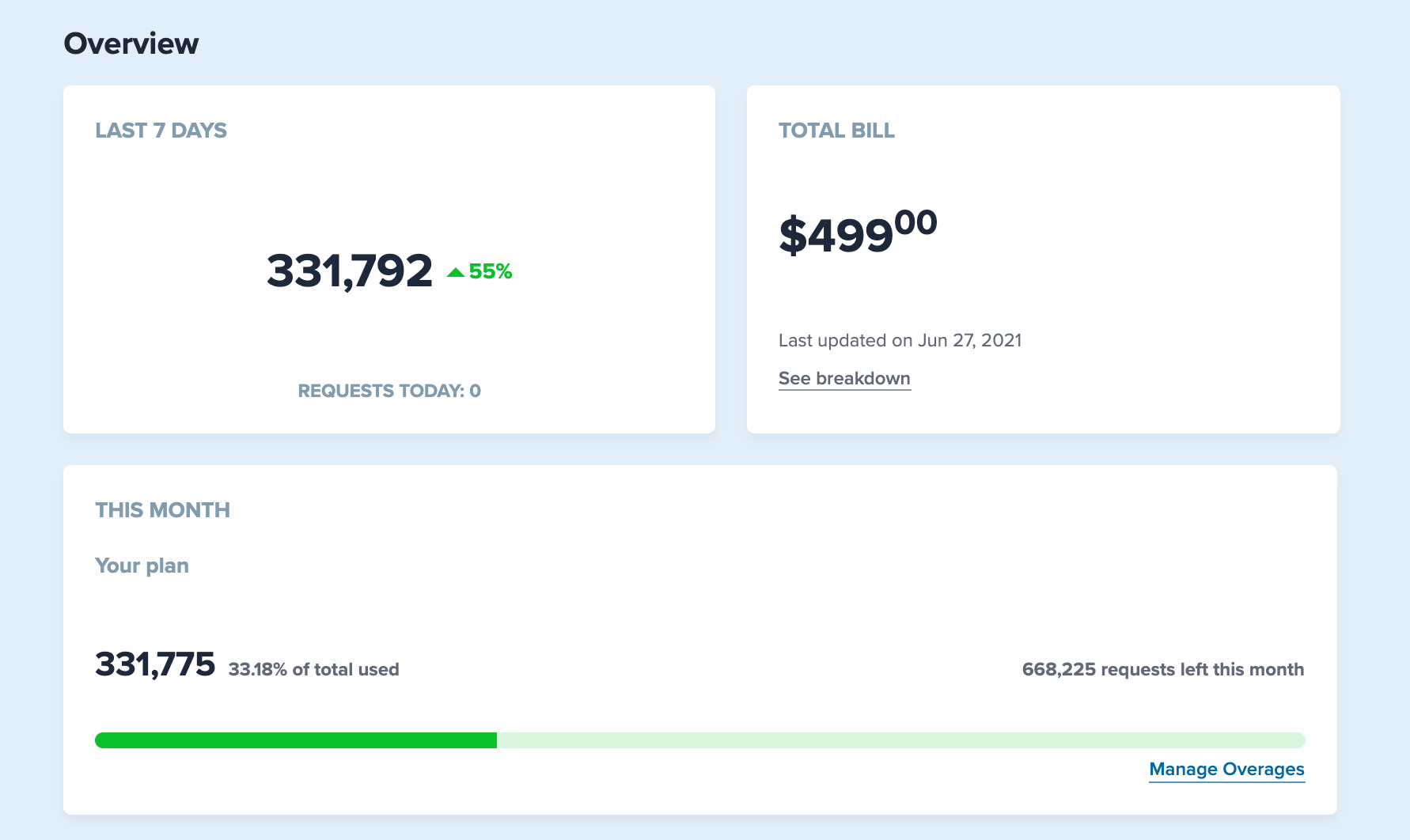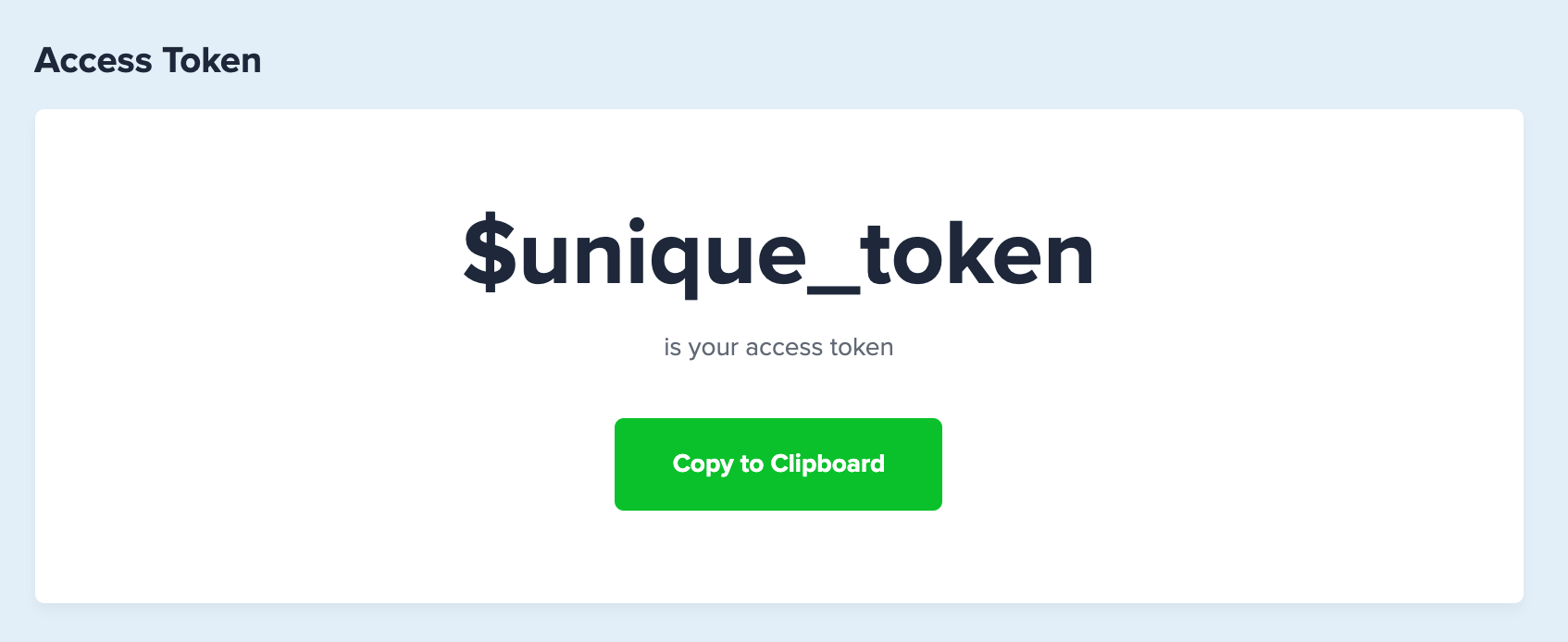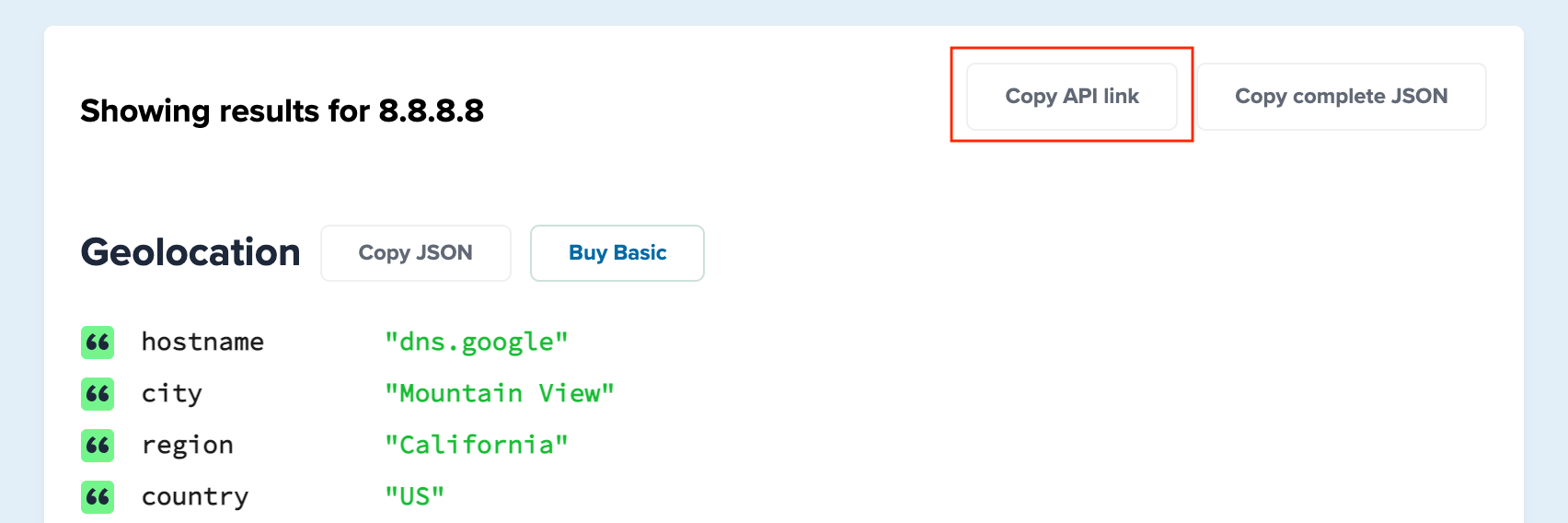Ever since 2013, IPinfo has been empowering industry-leading companies with accurate IP address data. Our goal is to give you all the IP information you need without any of the headache.
So if you’re new to IPinfo or simply curious about what the user experience looks like, then you’ve come to the right place. This simple, step-by-step guide makes our features accessible to all users.
1. Visit the dashboard
For first-time users, the dashboard is a must-visit page, and here’s why:
- You can test our data for free (more on this later).
- You can find your token number.
- You can keep track of monthly and daily requests.
- You can contact the support team.
- You can view subscription options.
In other words, if you want to get an idea of how IPinfo works for users, then the dashboard is the place to go.

All the perks of being a new user, such as the free trial and connecting to our data experts, are available there. So head on over to the dashboard to check it out!
2. Check out the data and try our search feature
We like our data to speak for itself. That’s why one of the first stops for many users is our free search feature. This interface is also a convenient way to review our data before spending significant time on integration.
In other words, without writing a single line of code, new users can get all IP address information they need. Plus, they can access up to one hundred full response requests per day with the click of a button.
Everything from geolocation, ASN, carrier, hosting, company, to privacy data, is accessible via our simple search tool. But once you subscribe to a plan - basic, business, or business plus - you’ll also receive additional responses per day in the search interface.
All this to say, if you haven’t tried out our search feature, what are you waiting for?

Go ahead! Test our data. It really is that good.
3. Test your token number
For new users, the next place to go is your token number. What’s a token? Think of it as an access key or personal ID for all your IP address requests.

Left sitting on your dashboard it doesn’t do anything. But put into use, it connects you with geolocation information from your website.
How to test your token number
The first step is to test your token number in your browser. Simply plug it into a URL (e.g. ttps://ipinfo.io/1.1.1.1?token=<Your Token>) in your browser, and it should return valid geolocation details.
To simplify all of these steps for our users, however, the “Copy API Link” in our search interface gives you the correct link with the click of a button. Here’s what this button looks like:

Side note: It’s also important to mention that you may need to add more security details for token protection. More on this later, but for now, just know that an exposed token can eat up your monthly requests.
At this point, you’re ready to use the token URL for frontend or backend integrations.
For developers: Using your token for integrations
Frontend integrations simply require running https://ipinfo.io/json?token=<Your Token> through your browser. This will show you the IP address data for your website visitors.
At this point, this information can be used to customize experiences on your site. For instance, an ecommerce business could use this data to show localized currency or location-based offers. More on use cases later.
When it comes to backend integrations, it’s best to start using the IP address available in your user’s request, such as request[‘ip’] or request in[‘x-forwarded-for’]. IPs from this log can then be queried for by script.
But we also offer free Software Development Kits (SDKs) for developers. Our libraries, for example, are available in languages from PHP to RUST. And our guides give developers a quick start on everything from bulk lookups to filtering bot traffic.
Beyond frontend and backend integrations, though, you can also use your token number for 3rd party integrations or one of our many official integrations.
And while integrations often take more work, testing them can be as simple as inserting the token number into, say, the Wordpress integration.
4. Activate the free trial
Here at IPinfo we’re all about making sure customers get the most accurate data possible... all while being supported by a team of data experts. But before customers invest in an API like ours, we want to give them an inside look. That’s why we offer an all-in-one free trial of our API.
You can activate this plan on the main page of your dashboard with the click of a button. Once it’s active, responses to your requests will be available through the API endpoint.
Lasting for 14 days, this trial allows new users to get a 360-degree view of our data and support before paying a cent.
5. Check out our supported integrations
We also offer a variety of supported integrations to support cybersecurity teams, advertisers, financial technology, healthcare, and many other use cases. Here are some of the official ones we offer:
- Maltego
- Snowflake
- Zapier
- Wordpress
- Cortex XSOAR
- Splunk
- Pipedream
- Heroku
- Polarity
- Datarade's Data Commerce Cloud
Additionally, with the free weeklong trial, API users can try IPinfo's datasets within integrations, allowing them to identify the best integrations, libraries, or use cases for their project.
Snowflake users can also use IPinfo's free IP Geolocation sample database within the integration to test the data in their use case before choosing a paid plan.
6. Try our official Command Line Interface
We also have our own Command Line Interface (CLI) that supports nearly every feature and API we offer. Here are a few things to try when it comes to our CLI:
- Lookup IP details in bulk or one-by-one.
- Lookup ASN details.
- Summarize the details of up to 1000 IPs at a time.
- Open a map of IP locations for any set of IPs.
Additionally, you can check out our CLI guide series to discover more ways to use our commands and use your data to it's full capacity.
7. Check out our use cases
Because IPinfo works with thousands of bleeding-edge companies around the world, our use cases are constantly developing: Fintech, Cyber security, ABM, Ecommerce, and many more to come. These industry-leading innovators have at times created new uses that were sometimes quite surprising… even for the IPinfo team.
Due to the fact that many of our customers have unique requirements, their implementation of our data has helped many other IPinfo users accelerate their own growth.
All this to say, if you haven’t looked at IPinfo’s use cases, it might get those creative juices flowing. Who knows? You might come up with the next innovative use case!
But regardless, our existing ones are designed to give you a roadmap. That way you can get up and running immediately with our API. To help make this process even faster, some of our developer guides also include technical walkthroughs for quicker integration processes.
8. Reach out to our data experts
Data accuracy is a top priority for our team. But beyond that, we have our own in-house data experts who support customers every day.
Not only do they maintain and develop our ever-growing IP address database, but they also help IPinfo’s customers troubleshoot problems along the way. In addition, they develop innovative solutions for many customers with unique requirements.
In short, our worldwide team of experts wants to hear from you and answer questions that come up as you explore our API.
9. Choose the right subscription plan
Especially if you’re a business, you always want to make sure your integrations are working. That’s why if you’re exceeding 50,000 requests per month or need more data types, you might want to upgrade to one of our paid plans.
On the bright side, though, if you ever exceed your monthly limit, our API won’t stop working thanks to our metered billing feature. In other words, there’s no pressure to move to the next plan before you’re ready. Our API is designed to grow with you!
That being said, there are a few reasons you might want to upgrade your account as you get comfortable with our API and integrations.
Fill in important account details: Token security
But before you upgrade, it’s important to also check your token security. For new users and old users alike, we encourage restricting your token to your IP address or website. You can also whitelist requesting IPs to protect your number.
Added token security details can prevent token exposure, especially with frontend integrations. And while not necessary on the server side, an extra layer of protection won’t do any damage.
Concerned that your token has been exposed? If your requests are abnormally higher than normal, you may be right. To protect your monthly quota of lookups, it may be time to lock your token.
Simply go to the “Token Security” tab on your dashboard to set the right parameters.
Limitations of the free plan
Because our free plan is limited to geolocation data and basic ASN details, some users may benefit from more information. Meaning that if you need richer proprietary data, such as privacy detection, IP ranges, or mobile carrier data, an upgrade is worth considering.
Every subscription plan has a different amount of requests and data types. For instance, our basic plan gives users geolocation details and ASN details. Other plans offer even more additional data sets, such as these:
- Company details
- Privacy Detection API (VPN, proxy, Tor)
- Carrier details
- Hosted Domains API
- Abuse Contact API
- IP ranges API
In other words, depending on your specific site needs, the free plan may or may not gather enough data to help you reach your goals. If this is the case, then it’s probably time to look at one of our subscriptions.
Metered billing
In addition, we recently launched metered billing. This means that if you consume your monthly quota before the end of the month we automatically add a block of 50,000 requests as needed. As a result, your service will never break.

Plus, our team will notify you via email when you’re getting close to your quota. While this feature is turned on by default, you can opt-in or opt-out at any time on the dashboard.
Enterprise solutions
We also offer solutions for businesses who regularly exceed 2.5 million lookups per month, who have custom data needs, or who have other special requirements.

Simply reach out to our team of experts who love helping create custom solutions for enterprise-sized ventures.
To sum it all up, users can get started with IP address data right away. These simple steps should help you navigate through our most-used features.
